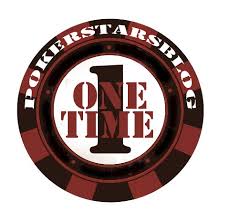Got a lucky hand? Do you say ‘one time’ when you are all-in? Do you prefer driving to flying? You may have the illusion of control.

One of the real gifts poker has given me is that it has been a great jumping off point to learn things from other disciplines like economics, AI, psychology and Game Theory. So here is a series of articles where I bring some of the most interesting things I have learned from other subjects outside of poker which are applicable in this game we know and love.
This week’s GTO theory is something anybody playing poker really should be aware of, though thankfully the fact you are reading this on a website that teaches poker makes it more likely this is not a huge issue for you.
The illusion of control is a cognitive bias that was identified by Ellen Langer in 1975 and has been replicated in testing widely since then. In particular it tells us a lot of about superstition and errors people make when gambling.
The theory states that people overestimate their ability to control events they have no influence on, especially when there are ‘skill cues’ present. A skill cue would be an action which in other circumstances might influence the outcome of something, but not in this case. A classic example found in casinos is that when people are trying to roll a high number in craps they throw the dice hard, but when they are trying to get a low number they throw them softly. There are times in life where if you hit something hard you will get a higher result (like a punch bag game at a fair), but getting a big number on a dice is not influenced at all by how hard it is thrown.
This is also why people feel safer when they are driving to an airport compared to when they are a passenger on the plane, even though statistically they are much more likely to cause a car accident as a driver than they ever are to be involved in a plane crash as a passenger. Even when we know the odds, we prefer to be the one in the driving seat.
You don’t have a “one time”

You already know how this relates to poker. One of the big differences between a professional player and a recreational player involves understanding what parts of the outcome are skill and what are luck. The professional knows when they are taking a risk, the gambler does not. One of the core reasons why we all go on tilt is because at some gut level we still do not fully recognise what is skill or variance (hence why we all tell bad beat stories, even though we know coolers are part of the game).
This is why we see lots of superstition in poker, even from good players. If you have worn a lucky hat, or have a lucky hand, or you think you win more coinflips on Unibet than you do at 888poker, you have fallen victim to the illusion of control. You probably see it more than anything when a player is all-in and thus has no control over what happens next, and you see unusual rituals like shouting “one time”, not looking at the run-out or even praying. None of these things make a difference, but you have to do something to make it feel like you have control.
Even things like taking a break if you are going on a downswing, if done for the wrong reason, is an example of illusion of control. There are very good mental game reasons to do it, such as to clear your head before you play again, but some people take a break from playing because deep down they think when they return, the downswing will be over, as if a downswing is a period of time on a calendar rather than a sequence of hands that don’t go well.
We have evolved to lie to ourself

These are all pretty obvious examples, but don’t dismiss them and assume it’s not a problem for you. I regularly see poker players who massively over weight the importance of something largely irrelevant and then convince themselves that it was the deciding factor in the hand. Inexperienced players who still go with a hunch (which they will claim is a soul read) will often do this, they’ll vastly overestimate their ability to spot tells and convince themselves that that’s why they called or folded. Yes, spotting tells is a skill aspect not a luck aspect, but it’s pretty close to random when you don’t actually know what you are doing, so when an inexperienced player says they knew you were bluffing, they really are just gambling.
Human beings are highly skilled when it comes to fooling themselves, in fact psychologist Robert Trivers has a lifetime of work looking at why we have evolved to believe our own illusions. He argues we lie to ourselves so we can more easily decieve other people (in fact, he showed that the more intelligent the person, the better they are at kidding themselves). In the case of illusion of control the evolutionary benefit of believing we have more influence than we do is that it makes us more confident to try new things. If we were on the other end of the spectrum and acted like we had no control, we would feel like rudderless victims and do nothing at all. But in a pursuit like poker, where identifying what is luck and what is skill, this evolutionary advantage is very dangerous.
I’ve worked a lot with mental game coach Jared Tendler and his advice in general for this is simply to always ask yourself at the end of a session: how much of the result was due to A) your skill B) your opponent’s skill and C) variance? This is a really useful way to train yourself to always question how much luck is involved and what you actually influenced in any given session. You’ll still lie to yourself, but less so.
What theories from outside of poker have really helped you with your game? Let us know in the comments:
Related
source https://casinonewsblogger.com/news-gto-poker-theories-illusion-of-control/

No comments:
Post a Comment